2019 recipients
Twenty recipients have been awarded a Queensland Citizen Science Grant, with more than $550,000 funding committed over three years to help increase Queenslanders’ participation in citizen science.
-
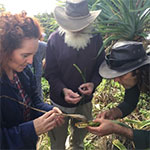 Citizen Scientists Mapping Biodiversity: the Cooloola BioBlitz Series
Citizen Scientists Mapping Biodiversity: the Cooloola BioBlitz SeriesCooloola Coastcare
$30,000
The Citizen Scientists Mapping Biodiversity: the Cooloola BioBlitz Series will help map the biodiversity of the Cooloola Coast and Great Sandy Straits in a series of terrestrial and marine biodiversity mapping events called BioBlitzes. At the first Cooloola BioBlitz in 2018, 38 species new to science were discovered in just 48 hours!
These events will be conducted across all seasons between June 2019 and 10 June 2022.
-
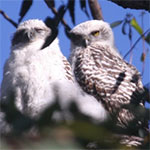 Powerful Owl Project of Southern Queensland
Powerful Owl Project of Southern QueenslandBirdLife Australia Ltd. (Southern Queensland Branch)
$29,485
The Powerful Owl project of southern Queensland will help discover where threatened Powerful Owls are breeding in south east Queensland forests. This project will include training of 400 volunteers and public outreach to gain more data on sightings of Powerful Owls in regional areas.
This project will allow Queenslanders to reconnect with biodiversity issues in urban environments, allow for more opportunistic sightings of Powerful Owl in regional areas, and broadcast the importance of retaining mature forest and hollow bearing trees in our region.
-
 Team Turtle CQ
Team Turtle CQFitzroy Basin Association Inc.
$30,000
The TeamTurtleCQ project involves citizen scientists recording data on marine turtles along the Capricorn and Curtis coasts of Central Queensland. Volunteers are trained to identify turtles, nests and the presences of threats building information to help marine turtle conservation.
Data on the number of marine turtle nests, hatchlings and key threats will be generated for each marine turtle nesting season. This will also aid in fostering environmental stewardship to ensure natural assets of the area can be enjoyed by future generations.
-
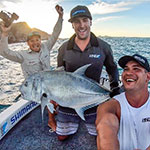 SCF Citizen Science - Recreational Fishing Program
SCF Citizen Science - Recreational Fishing Program SCF Events Pty Ltd
$29,950
The SCF Citizen Science - Recreational Fishing Program will develop a standardised competition data collection program based on the Track My Fish app to help collect data on fish health. This consistent methodology is expected to provide data on an additional 60,000 fish per year.
This project will enable the participation of a much larger number of fishers in citizen science and open citizen science to fishers of all ages and skill levels.
-
Mangrove Watch Cairns
Cairns and Far North Environment Centre
$29,980
Mangroves are vital ecosystems. They produce more carbon than any terrestrial forest type and do it 50 times faster. They are nurseries for fish, homes for many animals, filters of water and protectors of coasts.
MangroveWatch Cairns will work with citizen scientists to monitor three major estuaries and associated creeks in Far North Queensland: Barron River, Trinity Inlet and Russell-Mulgrave. This project will also provide training and facilitate citizen science saltmarsh condition monitoring at 10 sites.This monitoring involves trained teams heading out on their own boats to record data on the water.
-
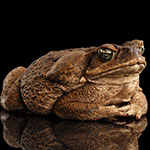 Cane Toad Challenge
Cane Toad Challenge The University of Queensland
$30,000
The Cane Toad Challenge provides Queenslanders with the chance to participate in citizen science, by trialling an innovative environmentally-sustainable method for controlling cane toad populations using tadpole trapping. Scientists will use the information to record and report on the success of tadpole trapping in diverse habitats across Queensland.
Citizen scientists will be given tadpole pheromone baits and advice on how to build and deploy these baits in cane toad tadpole traps – an environmentally-sustainable method of capturing and eradicating many millions of cane toad tadpoles from waterways.
-
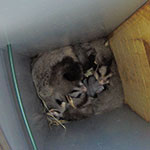 Bulimba Creek Catchment Citizen Science Nest Box Monitoring
Bulimba Creek Catchment Citizen Science Nest Box MonitoringBulimba Creek Catchment Coordinating Committee
$21,070
Fauna Nest Boxes are currently being used to compensate for the loss of hollow bearing trees, but there is limited research into what factors influence uptake of nest boxes by target species.
The aim of the Bulimba Creek Catchment Citizen Science Nest Box Monitoring project is to identify which animals use artificial fauna nest boxes installed in local bushlands and parks. Citizen scientists will gather observational data using speciality monitoring equipment, and analyse the data with support from Griffith University.
-
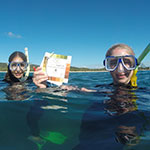 Colours of the Reef
Colours of the ReefCoralWatch, The University of Queensland
$29,022
In 2016-17, the Great Barrier Reef lost 50% coral cover. Many people aren’t aware of the magnitude of this problem and if they are, struggle with how they can help. This project will help train ambassadors to educate their community about the issues the reef is facing and demonstrate the value of participating in citizen science projects.
The project also involves a year-long social media campaign in 2020, where short videos highlighting involvement in citizen science and solution-finding contributing to the protection of the reef will be the focus of each month.
-
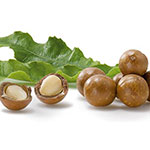 Queensland's Wild Macadamia Hunt
Queensland's Wild Macadamia HuntHealthy Land & Water
$29,996
Queensland's Wild Macadamia Hunt invites Queenslanders to report on old Macadamia trees and collect leaves for genetic analysis. Citizen scientists will provide valuable scientific information on all species of Macadamia, which are threatened in the wild (despite being common in cultivation).
Nuts from wild Macadamia trees were planted in backyards across the state and elsewhere in Australia during the late 1800s and early 1900s. The project aims to find any surviving trees from these early plantings, which may contain genes from long lost wild populations – valuable for conservation and horticulture.
-
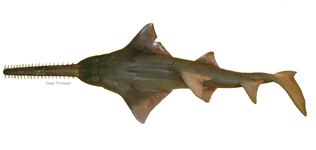 Citizen Scientist Sawfish Program
Citizen Scientist Sawfish ProgramSharks and Rays Australia
$27,950
Sawfish are the most critically endangered species of sharks and rays in the world with Far North Queensland and Cape York river systems considered one of the species’ last strongholds.
The Citizen Scientist Sawfish Program empowers community members to actively engage in the collection of data and contribute to sawfish research and conservation.
-
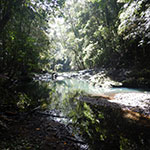 Gold Coast BioBlitz I-III
Gold Coast BioBlitz I-IIIGold Coast Catchment Association
$30,000
The Gold Coast BioBlitz I-III allows citizen scientists to help record the full breadth of native plants and animals found in Gold Coast hinterland valleys. The Gold Coast includes parts of the MacPherson Overlap, an area known for its species richness where many plants and animals occur at either the northern or southern limits of their range.
BioBlitz events will be held in Austinville (2019), Springbrook (2020) and Numinbah (2021).
-
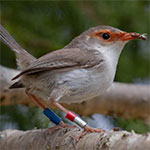 Developing and implementing new digital tools to enhance citizen-science bird banding efforts in Queensland
Developing and implementing new digital tools to enhance citizen-science bird banding efforts in QueenslandGriffith University
$30,000
Bird banding represents a valuable source of ecological data that can be used to track bird population health, population diversity and movement patterns. This project will develop user-friendly digital infrastructure in collaboration with Queensland's bird banding community to enhance their experience.
Citizen scientists will work with leading researchers at Griffith University’s Environmental Futures Research Institute, Birds Queensland, and the Winston Churchill Memorial Trust.
To get involved email w.feeney@griffith.edu.au
-
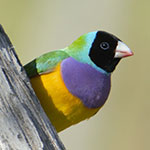 Queensland Gouldian Finch study and awareness raising
Queensland Gouldian Finch study and awareness raisingNorth Queensland Natural History Group Inc.
$29,700
The Queensland Gouldian Finch Study and Awareness Raising project aims to increase our understanding of endangered Gouldian Finch ecology and threats in northern Queensland.
The project will help train citizen scientists, land managers, and ecotourism staff in collecting information on the Gouldian Finch, their habitat and their food sources.
-
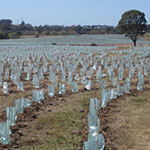 Evaluation of large-scale tree plantings in Brisbane
Evaluation of large-scale tree plantings in BrisbaneThe Hut Environmental and Community Association
$16,425
Between 2009 and 2012 Brisbane City Council coordinated the planting of two million native trees as part of their Greening Brisbane plan. Citizen scientists will team up with members of environmental and catchment groups to examine the Wacol precinct for tree health (including presence of myrtle rust), level of weed invasion, and the presence of reptiles, mammals and birds.
This project will provide volunteer citizen scientists with skills in plant and animal identification, vegetation evaluation techniques, and involvement in writing papers and articles.
The Hut Environmental and Community Association Citizen Science Project
-
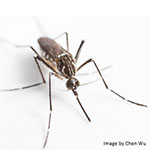 STEM Champion Mozzie Hunters
STEM Champion Mozzie HuntersQIMR Berghofer Medical Research Institute
$30,000
Mosquitoes and the diseases they transmit (such as Dengue and Zika viruses) are a global crisis that often requires direct citizen action to overcome.
This project will develop STEM-based secondary school modules where student scientists collect mosquito eggs to monitor and model mosquito population size, and use molecular methods to detect the potential presence of exotic mosquitoes such as Aedes albopictus and Aedes aegypti.
-
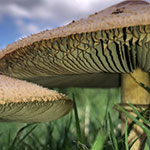 The Mycology Research Project
The Mycology Research ProjectWoodfordia Inc.
$29,571
Fungi play critical roles in the functioning of healthy ecosystems, driving nutrient cycling, providing food for a variety of wildlife, maintaining the health of plants and storing carbon in soils. However fungi are one of the least studied groups of organisms in Australia. The Mycology Research Project aims to train citizen scientists to study, research and contribute data on Queensland fungi; to raise awareness about the benefits of mycology (the studying of fungi); and make this science easily accessible to the Queensland community.
-
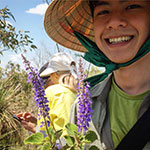 Partnering to expand our knowledge of biodiversity values on private land
Partnering to expand our knowledge of biodiversity values on private landQueensland Trust for Nature
$29,500
Nature refuges account for most of Queensland's conservation network, but landholders need support understanding biodiversity values on their properties. QTFN will bring together research and community partners to run four weekend biodiversity camps per year for the next three years, with the first planned for Aroona Station (1.5hr southwest of Brisbane), and programs in 2021 and 2022 to occur on other Nature Refuges in Queensland.
If you are a member of the public, come learn about and measure plant, invertebrate, mammal and bird diversity alongside ecology students and academics, community-centred environmental groups, and nature refuge landholders and their local communities.
If you are a nature refuge landholder, apply to have our team survey your property in 2021 or 2022.To get involved email info@qtfn.org.au.
-
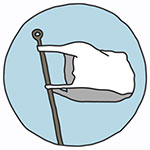 Precious Plastics TI
Precious Plastics TITagai State College
$14,025
The Precious Plastics Project TI (Thursday Island) will involve Year 9 students conducting marine debris surveys and collecting plastic flotsam to be used in plastic recycling machines. Year 10 students will use plastic filament extruded from these machines to create objects in a 3D printer.
During National Science Week in August 2020 the school will host an open day for the local Torres Strait Islander community to observe a demonstration of plastic recycling machines and results of the student projects.
To get involved email pheff2@eq.edu.au.
-
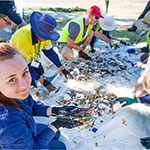 Community action in conservation: Marine debris collection and analysis
Community action in conservation: Marine debris collection and analysisConservation Volunteers Australia
$29,500
Plastic poses a serious threat to marine life and human health through the ingestion of microplastics in seafood and potentially from airborne sources. There is still much that we don’t know about microplastics.
In this project, citizen scientists will undertake beach clean-ups and data analysis of marine debris across South East Queensland. The data will be provided to the Tangaroa Blue Foundation for further analysis in a national database on marine debris.
Get involved – Golden Beach
Get involved – Woorim
Get involved – Victoria PointConservation Volunteers Australia Citizen Science Marine Debris Project
-
 The Dignity Project
The Dignity ProjectThe Hopkins Centre: Research for Rehabilitation and Resilience | Metro South Health | Menzies Health Institute Qld - Griffith University
$30,000
The Dignity Project is a digital engagement and analysis platform where people with disabilities can share, reinterpret and analyse collective experiences, enabling them to generate service and design innovations for the future.
The Hopkins Centre Ambassador Council has created this project with a vision to build a supportive community that protects the dignity of people who, as a consequence of their disability, rely on others to live well. The Dignity Project aims to support the fundamental rights of all citizens to be treated with respect in service interactions and to participate in an inclusive society.
Did you know that anyone can be a citizen scientist?
Check out this video to learn about citizen science and all the types of scientific projects you can help in Queensland.